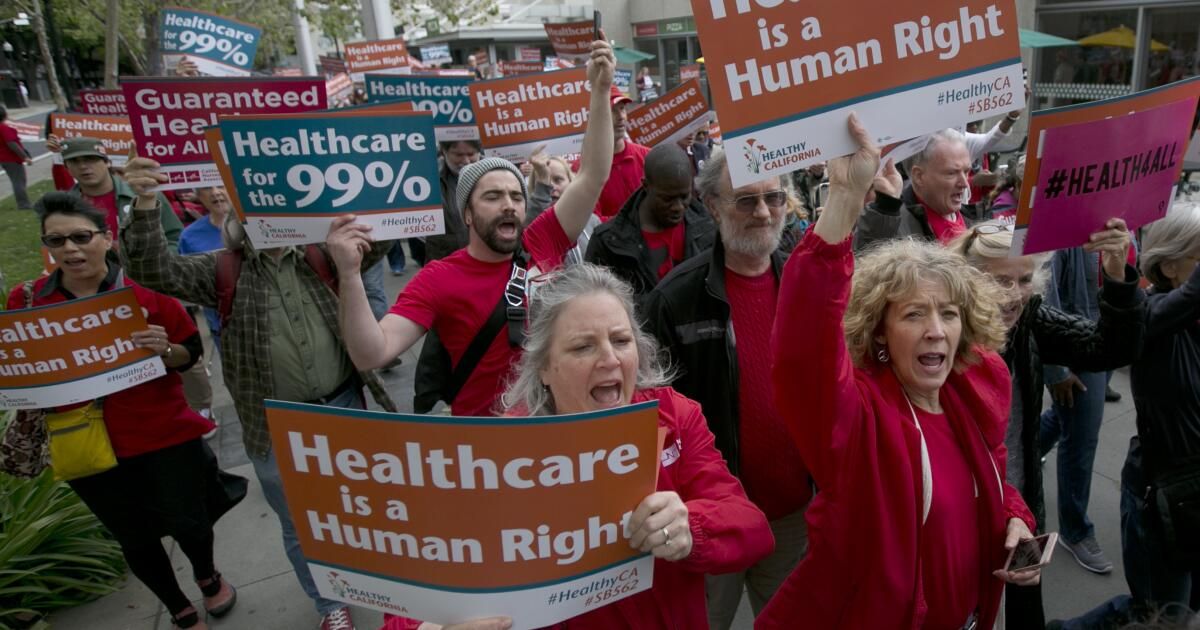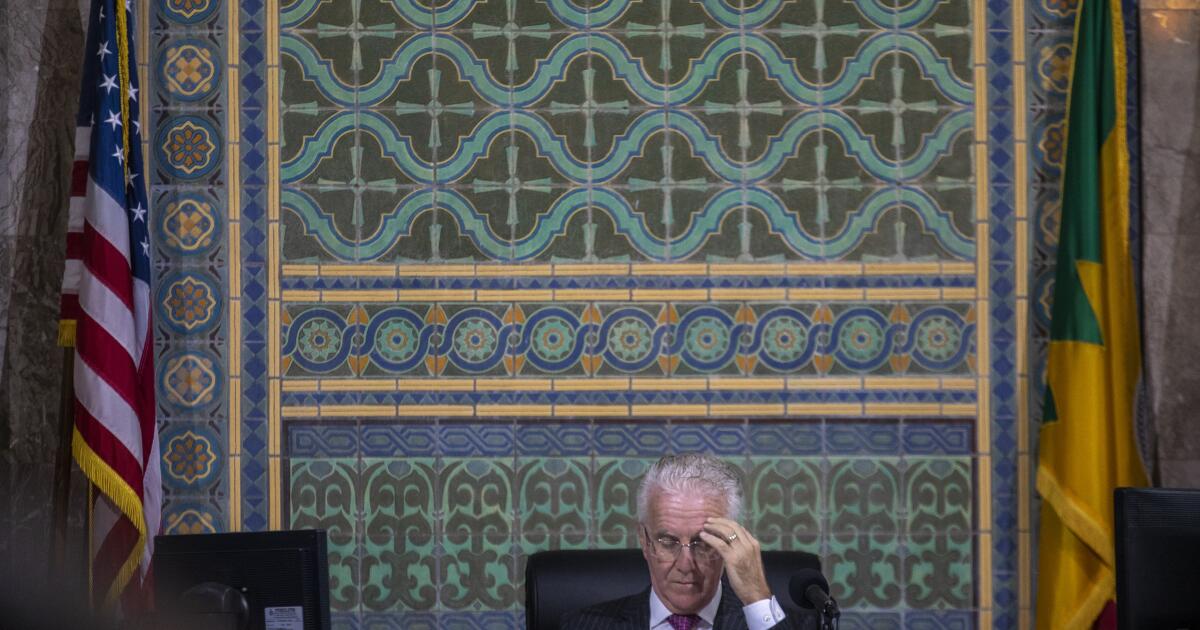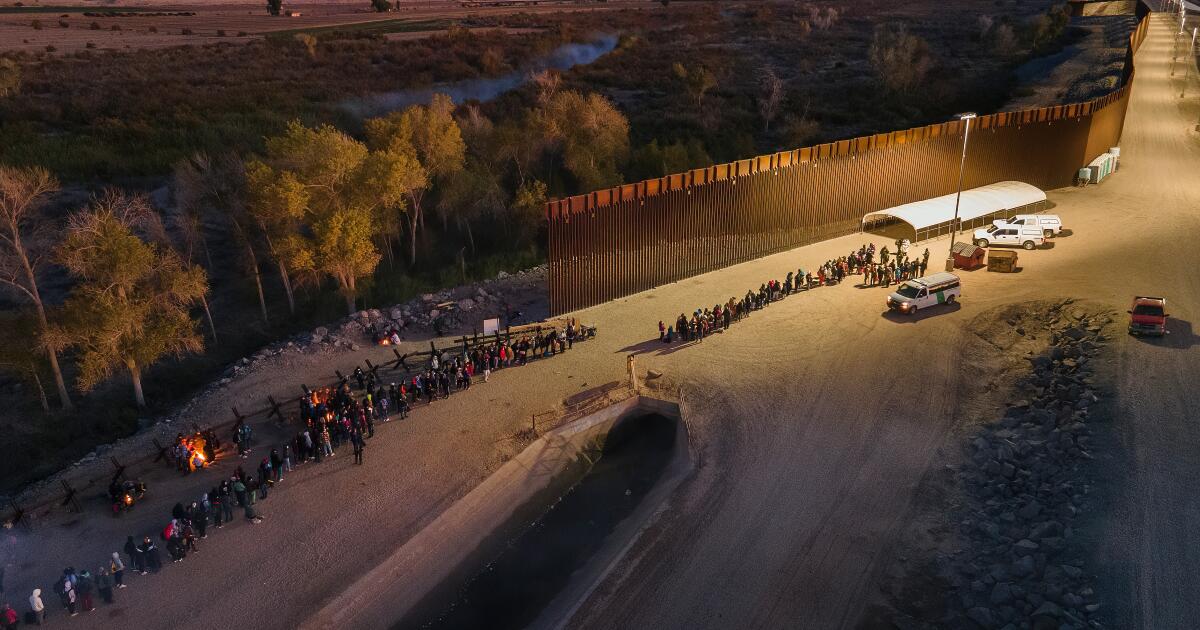To the editor: Assembly Bill 2200, the California Guaranteed Health Care for All Act, or CalCare, was buried without a public vote in the Assembly Appropriations Committee last week. Politicians who claim to support single-payer health care now say it should be delayed because the state has a huge budget deficit.
In an article published last year in Forbes, emergency physician Arthur L. Kellerman noted that the United States spends more on health care than other wealthy nations, but ranks last in health outcomes.
Every time research confirms this bad news, two objections are raised: that this country has world-class hospitals and medical research, and that any medical system other than ours would cost too much.
The stark class divisions in this country prevent millions of people from receiving timely checkups and comprehensive care. Our healthcare system is fragmented by competing insurance companies. Small businesses are burdened by employment-based health plans.
Bureaucrats and perverse incentives stand between providers and patients. Doctors burn out because, although they are trained to cure and save lives, they spend too much time arguing with insurance companies.
This broken system is already staggeringly expensive. A single-payer system would cost less and cover more. The administrative costs created by insurance companies would be drastically reduced.
If there is no democracy in healthcare, the basis of the social contract is undermined. Delayed healthcare is denied healthcare.
Scott Tucker, Los Angeles
..
To the editor: Tell readers the truth about single-payer systems: They don't work.
Most of us who live in California are lucky. If we need to see a doctor, we can usually get an appointment within a few days. But not everyone is so lucky and we must find ways to help those less fortunate.
But it is not necessary to destroy our entire health care delivery system to achieve this.
According to the Fraser Institute, a libertarian think tank in Canada, in 2023, Canadian patients waited longer than ever to receive medical treatment in their government-funded system. Doctors surveyed reported an average wait time of nearly 28 weeks, more than six months.
Single-payer systems tend to have a big problem: they are underfunded, and that causes unacceptable delays in getting help from a doctor. Why would we want that in California?
Doug McDermott, Santa Monica
..
To the editor: Did Assemblywoman Buffy Wicks (D-Oakland), chair of the Appropriations Committee, bother to read the analysis of AB 2200 written by a senior consultant to her own committee?
That analysis clearly delineates AB 2200 as a policy bill, not a spending bill. It also cites the 2022 finding by Gov. Gavin Newsom's Healthy California for All Commission that, if single-payer were enacted, changes to the current system would reduce overall health care spending, saving California billions.
As Appropriations Chairman, Wicks has power over the fate of many bills. By denying Californians improved, comprehensive, universal healthcare and the freedom from medical debt, Wicks is also denying California a long-term investment to protect us from future deficits.
Carol Fodera, La Crescenta












